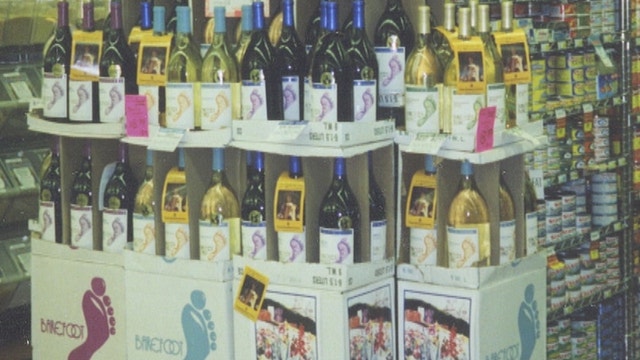Barefoot Wine’s ‘Get Rich Slow’ Scheme
Who says you need cash or expertise to start a business? Bonnie Harvey and Michael Houlihan said they lacked those two things, but have managed to create one of the country’s fastest-growing wine brands.
The co-founders of Barefoot Wine started the business in their laundry room in 1985 after moving to Sonoma County, not for the wine, but because they loved the location. Both partners worked within the wine industry, and while helping out a client, who was owed for crops of grapes that hadn’t been paid in years, they got the idea to start their business.
They worked with winemakers and also supermarkets on the distribution aspect of the business, and then decided to venture out on their own.
“We didn’t have a wine background, education or history,” Harvey said. “I didn’t drink wine often because I was intimidated and didn’t speak French.”
The brand they created was accessible, easy to remember and most importantly—cheap. The Barefoot logo also featured a literal bare foot on its design, which Harvey and Houlihan credit with some of its success.
But it wasn’t smooth sailing, at least not for the first decade. Houlihan said they started the business about $300,000 in debt, and they were underwater for about ten years. But the goal was always to sell and grow into a global brand, which it did, albeit slowly.
“If you keep your business really small, you may be able to make a profit,” Houlihan said. “You can’t sell millions of $5 bottles of wine in only the San Francisco Bay Area—we knew we’d have to come East. We realized that we required so much management on the shelf that we weren’t in the wine business at all, but we were in the distribution management business.”
Quite the opposite of many businesses that hide negative realities from workers, Harvey and Houlihan said they were always up-front with employees, letting them know the company’s struggles and asking the team to help out with solutions.
“We always subscribed to the golden rule, and put ourselves in the other guy’s shoes,” Houlihan said. “We call it ‘know to need’ instead of ‘need to know.’ We told them about how the company was doing the whole time, and gave them permission to make mistakes.”
Barefoot also found its way around expensive advertising, and did all of its promotion by donating to local nonprofit organizations, which the duo dubbed “worthy cause marketing.”
“We were a national bestseller without paid advertising—we had no money, but we did have wine in bulk,” Harvey said. “We would go into neighborhoods to find worthy causes to donate to, so that they would remember us and come buy our wine. It took us 20 years, so it was our ‘get rich slow’ scheme.”
After nearly two decades in business, Houlihan and Harvey decided to sell their brand for an undisclosed amount in 2005. They say that when they sold the brand, Barefoot was shipping about 600,000 cases of wine a year and today, it is shipping over 13 million cases annually.
Today, they are traveling across the country promoting their new book “The Barefoot Spirit,”and speaking to young entrepreneurs about their business experience. Houlihan said there has never been a better time for young people to manifest their own destiny and jump into the entrepreneurial arena.
“We have learned a lot and are coming out of the tunnel that so many young entrepreneurs are going into,” he said. “Our whole business was about designing backwards. Start out on the street and find out what your buyer wants. And, be humble enough to change your product.”




















